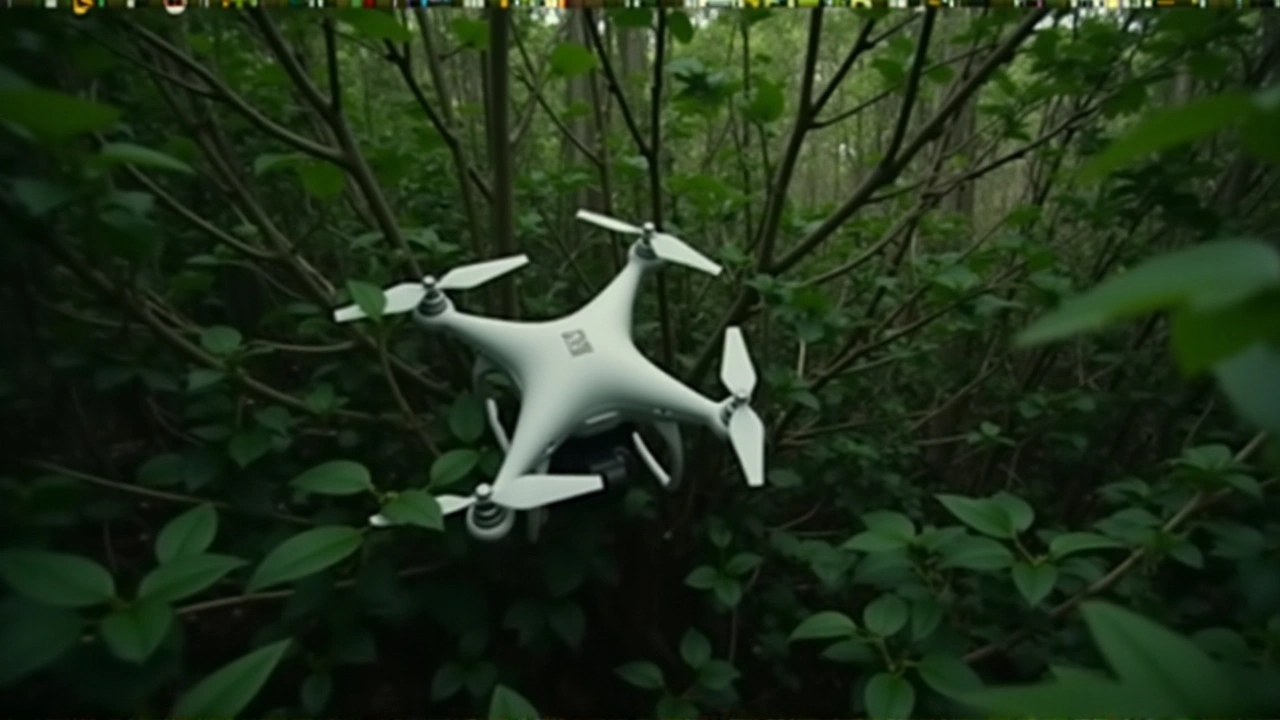Discovery of Drone Remains in Pyongyang
In a new twist in inter-Korean relations, North Korea has reported the recovery of what it claims are the remains of a South Korean military drone. The remains were allegedly found in the heart of Pyongyang, the capital city. The announcement was made on Saturday, October 19, 2024, and it has captured international attention as it brings to light the ongoing tensions this region has been experiencing. North Korea's military representatives chose not to disclose the methods they employed to detect the drone, nor provided the timeline of when exactly it was found. This vagueness leaves many questions unanswered regarding how a craft could infiltrate and be detected within the highly guarded airspace of North Korea.
Accusations of Espionage
The statement released by North Korea pointed an accusatory finger at South Korea, stating that this discovery serves as proof of their neighbor’s hostile intentions. The allegations imply that the drone's mission was to spy on military facilities, adding an espionage layer to ongoing conflicts. Such surveillance activities, if confirmed, could violate several international agreements and exacerbate mutual distrust. The rhetoric from Pyongyang is not unusual, as both countries often engage in verbal volleys that mirror real-life skirmishes and technological standoffs. Yet this incident specifically suggests an escalation at a time when the Korean Peninsula is already a global hotspot.
Historical Context of Mistrust
North Korea and South Korea have a historic feud that dates back to a divided history post-World War II, leading to the Korean War. The armistice in 1953 concluded active warfare, but a peace treaty never came. Since then, both nations have faced a perpetual state of tension, characterized by military standoffs and political rivalry. North Korea’s pursuit of nuclear weapons and its powerful rhetoric have continually strained relations with South Korea, which maintains a strategic military alliance with the United States. Accusations of espionage are not novel, but each incident reopens scars which time has not healed. This particular drone incident, blaring on North Korea's propaganda radar, reflects an enduring saga of intrigue and distrust.

The Larger Military Picture
The timing of this incident, amidst a backdrop of joint military exercises conducted by South Korea and the United States, casts a significant shadow. These drills are intended to fortify defenses against potential aggressions from the North but are often met with condemnation and threats of retaliation from Pyongyang. North Korea has frequently interpreted these drills as rehearsals for invasion, leading to a sharp rise in rhetoric coming from both sides. Military exercises in tense regions invariably carry the risk of miscalculations or misinterpretations, which could ignite real confrontations. The suspected espionage mission of a drone, spying on strategic sites, heightens the stakes and complexity of the already volatile situation.
Potential Diplomatic Outcomes
With the discovery of the drone, diplomatic relations between North and South Korea are expected to undergo further strain. Previous diplomatic engagements have had mixed outcomes, occasionally leading to talks and agreements on certain measures of disarmament or improved facilities for separated families to meet. Nonetheless, this drone incident could seriously jeopardize any progress or talks that were in motion to ease tensions. It speaks to the broader issues of surveillance and sovereignty, compounded by global diplomatic stances on North Korea’s nuclear program. Such an event often leads to heightened discussions in international platforms, including the United Nations, where such hostile interactions are viewed with grave concern.
Reactions and Speculations
The international community watches closely, aware that any escalation within the Korean Peninsula has wider implications for global security. Experts and analysts often weigh in with varied perspectives. Some speculate that this incident might be a propaganda ploy by the North to rally internal support or divert attention from internal economic issues. Others suggest it could be a signal, pressuring South Korea to reconsider its military policies and alliances. While concrete evidence of the espionage mission's details may not be publicized, the prevailing atmosphere remains tense, signaling to South Korea the seriousness with which its actions are scrutinized by Pyongyang.

Future Prospects and Peace Efforts
Despite these developments, efforts towards reconciliation and peace are crucial. The Korean Peninsula remains one of the last divides of the Cold War era, a region fraught with history but also immense potential for peaceful coexistence if navigated wisely. Countries with vested interests, including the United States, China, and Japan, have roles to play in mediating and fostering dialogues that aim for stability. The challenge is blending dialogue with concrete measures that address security concerns on both sides. The discovery of drone remains represents both a setback and an opportunity—a reminder of the persistent tensions but also a chance for renewed commitment toward mutual respect and cooperation.
The international community, though apprehensive, remains hopeful that rather than exacerbating hostilities, such incidents might spark critical conversations about peace and security in the Korean Peninsula. Whether this latest event propels or impedes peace efforts rests on the diplomatic engagements that follow.






